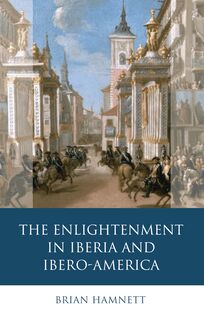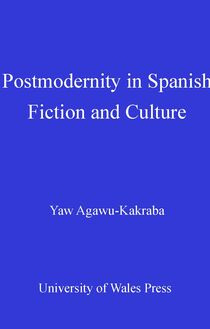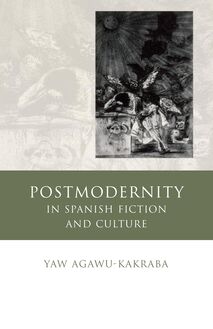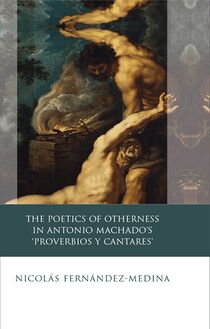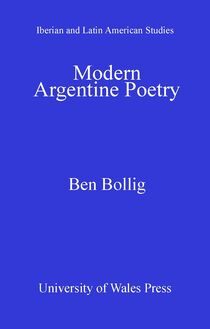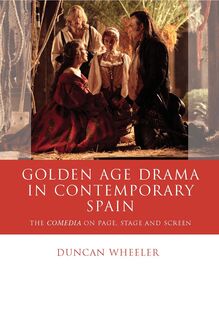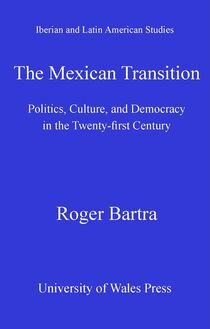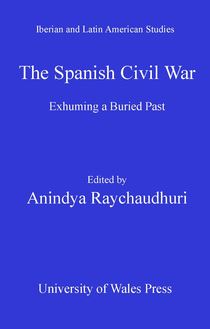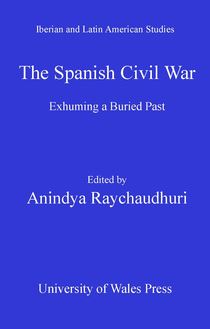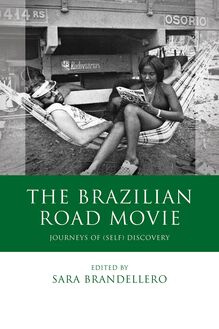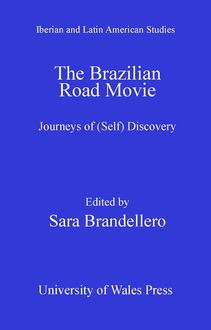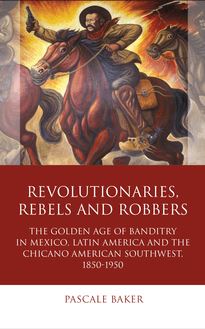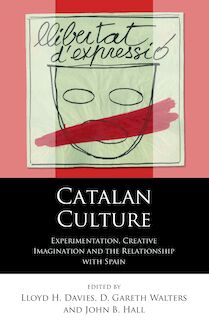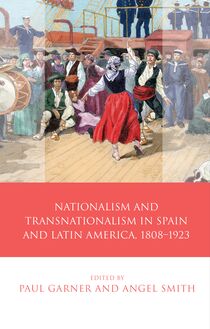-
 Univers
Univers
-
 Ebooks
Ebooks
-
 Livres audio
Livres audio
-
 Presse
Presse
-
 Podcasts
Podcasts
-
 BD
BD
-
 Documents
Documents
-
- Cours
- Révisions
- Ressources pédagogiques
- Sciences de l’éducation
- Manuels scolaires
- Langues
- Travaux de classe
- Annales de BEP
- Etudes supérieures
- Maternelle et primaire
- Fiches de lecture
- Orientation scolaire
- Méthodologie
- Corrigés de devoir
- Annales d’examens et concours
- Annales du bac
- Annales du brevet
- Rapports de stage
La lecture à portée de main
Vous pourrez modifier la taille du texte de cet ouvrage
Découvre YouScribe en t'inscrivant gratuitement
Je m'inscrisDécouvre YouScribe en t'inscrivant gratuitement
Je m'inscrisEn savoir plus
Vous pourrez modifier la taille du texte de cet ouvrage
En savoir plus

Description
The end of the second millennium witnessed an increase in science-fictional apocalyptic narratives globally. There is a noteworthy difference between such fictions from Latin America and the anglophone world and those from Spain, in which scientific explanations of events coexist with biblically-inspired plots, characters and imagery. This is the first book-length study of either science-fictional novels or apocalyptic literature in that country, analysing six such works between 1990 and 2005. Within a theoretical framework that includes critical and genre theories, archetypal criticism, and biblical scholarship, the book explains this phenomenon as a result of three historical factors: the ‘Two Spains’, Spanish ‘difference’, and the ‘Pact of Silence’, a tacit agreement that made justice and accountability impossible in the name of a peaceful transition to democracy. It repressed any processing of the historical trauma experienced during the Civil War and dictatorship, trauma that manifests itself symbolically in these fictions.
Series Editors’ Foreword
Acknowledgements
Chapter 1. Introduction
Chapter 2. Apocalypse and apotheosis in Rosa Montero’s Temblor
Chapter 3. Apocalypse and alienation in Javier Negrete’s Nox perpetua
Chapter 4. The Mater of all apocalypses: Juan Miguel Aguilera’s La locura de Dios
Chapter 5. Enlightening the apocalypse: Enrique del Barco’s Punto Omega
Chapter 6. Born to kill: Eduardo Vaquerizo’s Mentes de noche y hielo
Chapter 7. ‘Fiery the angels rose’: José Miguel Pallarés and Amadeo Garrigós’s Tiempo prestado
Afterword
Works cited
Index
Sujets
Informations
| Publié par | University of Wales Press |
| Date de parution | 15 décembre 2021 |
| Nombre de lectures | 0 |
| EAN13 | 9781786838148 |
| Langue | English |
Informations légales : prix de location à la page 0,4100€. Cette information est donnée uniquement à titre indicatif conformément à la législation en vigueur.
Extrait
IBERIAN AND LATIN AMERICAN STUDIES
Spain is different?
Series Editors
Professor David George (Swansea University)
Professor Paul Garner (University of Leeds)
Editorial Board
Samuel Amago (University of Virginia)
Roger Bartra (Universidad Autónoma de México)
Paul Castro (University of Glasgow)
Richard Cleminson (University of Leeds)
Catherine Davies (University of London)
Luisa-Elena Delgado (University of Illinois)
Maria Delgado (Central School of Speech and Drama, London)
Will Fowler (University of St Andrews)
David Gies (University of Virginia)
Gareth Walters (Swansea University)
Duncan Wheeler (University of Leeds)
Other titles in the series
Blood, Land and Power: The Rise and Fall of the Spanish Nobility and Lineages in the Early Modern Period
Manuel Perez-Garcia
Fantastic Short Stories by Women Authors from Spain and Latin America: A Critical Anthology
Patricia Gracía and Teresa López-Pellisa
Carmen Martín Gaite: Poetics, Visual Elements and Space
Ester Bautista Botello
The Spanish Anarchists of Northern Australia: Revolution in the Sugar Cane Fields
Robert Mason
Paulo Emilio Salles Gomes: On Brazil and Global Cinema
Maite Conde and Stephanie Dennison
The Tlatelolco Massacre, Mexico 1968, and the Emotional Triangle of Anger, Grief and Shame: iscourses of Truth(s)
Victoria Carpenter
The Darkening Nation: Race, Neoliberalism and Crisis in Argentina
Ignacio Aguiló
IBERIAN AND LATIN AMERICAN STUDIES
Spain is different?
Historical memory and the ‘Two Spains’ in turn-of-the-millennium Spanish apocalyptic fictions
DALE KNICKERBOCKER
© Dale Knickerbocker, 2021
All rights reserved. No part of this book may be reproduced in any material form (including photocopying or storing it in any medium by electronic means and whether or not transiently or incidentally to some other use of this publication) without the written permission of the copyright owner. Applications for the copyright owner’s written permission to reproduce any part of this publication should be addressed to the University of Wales Press, University of Wales Registry, King Edward VII Avenue, Cardiff CF10 3NS.
www.uwp.co.uk
British Library CIP
A catalogue record for this book is available from the British Library.
ISBN 978-1-78683-812-4
e-ISBN 978-1-78683-814-8
The right of Dale Knickerbocker to be identified as author of this work has been asserted in accordance with sections 77 and 79 of the Copyright, Designs and Patents Act 1988.
To my parents, Lorraine C. Knickerbocker and Harold W. ‘Bud’ Knickerbocker
Contents
Series Editors’ Foreword
Acknowledgements
1 Introduction
Homo narrans , homo sapiens ; or, why tell stories?
Apocalypse now (and then): a beginner’s guide to the end
A Spanish (hi)story
Metanarrative 1: Two Spains
Metanarrative 2: Spain is different
Metanarrative 3: The myth of the Transition
Apocalypse and sublimation
Why science fiction?
The texts
2 Apocalypse and apotheosis in Rosa Montero’s Temblor
History, science fiction and the fantastic
Mining the monomyth
Apocalypse
3 Apocalypse and alienation in Javier Negrete’s Nox perpetua
Apocalypse Nox
Speaking of science, fictionally
The once and future us
Alienation and the technological grotesque
4 The Mater of all apocalypses: Juan Miguel Aguilera’s La locura de Dios
A dialogics of the Two Spains; or, a Llull in the action
A most apocalyptic apocalypse
A steampunk City of God?
5 Enlightening the apocalypse: Enrique del Barco’s Punto Omega
Getting to the point: Teilhard de Chardin’s Omega Point theory
Science fiction 1: Being human
Science fiction 2: Observe – the observer
Posthuman, all too human: the posthuman apocalypse
The end of ideologies – or the birth of global totalitarianism?
6 Born to kill: Eduardo Vaquerizo’s Mentes de noche y hielo
Past imperfect, future imperfect
Conclusion: the birth of ambivalent gods
7 ‘Fiery the angels rose’: José Miguel Pallarés and Amadeo Garrigós’s Tiempo prestado
The science fictional and Clarke’s third law
Apocalypse: of angels and monsters
‘Your brother will rise again’
Creation and evolution
‘Another book was opened, which is the Book of Life’
Afterword
Notes
Works cited
Series Editors’ Foreword
Over recent decades the traditional ‘languages and literatures’ model in Spanish departments in universities in the United Kingdom has been superseded by a contextual, interdisciplinary and ‘area studies’ approach to the study of the culture, history, society and politics of the Hispanic and Lusophone worlds – categories that extend far beyond the confines of the Iberian Peninsula, not only in Latin America but also to Spanish-speaking and Lusophone Africa.
In response to these dynamic trends in research priorities and curriculum development, this series is designed to present both disciplinary and interdisciplinary research within the general field of Iberian and Latin American Studies, particularly studies that explore all aspects of Cultural Production (inter alia literature, film, music, dance, sport) in Spanish, Portuguese, Basque, Catalan, Galician and indigenous languages of Latin America. The series also aims to publish research in the History and Politics of the Hispanic and Lusophone worlds, at the level of both the region and the nation-state, as well as on Cultural Studies that explore the shifting terrains of gender, sexual, racial and postcolonial identities in those same regions.
Acknowledgements
I would like to thank Linda E. McMahon for her generosity in endowing the Department of Foreign Language and Literatures at East Carolina University with a Distinguished Professorship, the funds from which allowed me to finish this study. I also owe a great debt to my mentors at every level: Ellen Caricofe, Sonia Bispaniero de Edwards, Dr Diane Urey, Dr Lou Charnon-Deutsch and Dr Nancy Mayberry. The members of the International Association for the Fantastic in the Arts have left their intellectual fingerprints all over this study, and I thank them for their ideas, support and friendship.
The most important acknowledgement goes out to Purificación Martínez Escamilla, who has honoured me with her love and companionship for more than thirty years, and who inspires me daily to be a better human.
Chapter 1
Introduction
_________________________________
To tell stories is to introduce order into the chaos of the world, to give to life’s events a meaning lacking in their mere happening. From this comes my certainty in the transcendent and originary nature of narration for the human species, in narration and the human condition being inseparable, in fiction being the first form of intelligence, a form of knowledge previous to all the rest. 1
As an undercurrent of Western imagination, apocalypticism is always with us. 2
Homo narrans , homo sapiens ; or, why tell stories?
This is a book about stories told by Spaniards. Some of these stories are classified, by the people who classify such things, as ‘histories’, narratives that explain events in the past as a series of causes and effects in an attempt to reveal some ‘truth’. Others are what we commonly call ‘fictions’, the product of human imagination (it is interesting that in Spanish the same word, historia , is used to refer to both). Robert Scholes has affirmed that our species possesses a ‘psychological need for narration’, 3 and Peter Brooks has observed that ‘[n]arrative is one of the large categories or systems of understanding that we use in our negotiation with reality’, 4 serving to help us to make sense of our environment.
Historically, the first of such narratives were most likely mythological or religious. These writings have always constituted an important explanatory tool for cultures, as well as means of expressing collective identity, and are thus among the best primary sources for investigating the mind of homo sapiens . It comes as no surprise, then, that writers of fiction have mined and adapted these narratives.
One of the most common stories of this type describes the destruction and recreation of the world – what we now call ‘apocalypse’ – and anthropologists have amply demonstrated the existence of such tales in a vast number of cultures, locations and time periods. 5 The book that you hold in your hands examines apocalyptic stories published in Spain between 1990 and 2005. These tales are fictions, not History, 6 they make no pretence of describing any aspect of the world that we consider real, nor to explain literally or logically anything that happens in it. Nonetheless, they were not created ex nihilo : they were written by individuals from a particular place at a particular time. If José María Merino, Scholes and Brooks are correct, they must in some way serve an epistemological function. Yet they are not academic treatises, sense-making cannot be their only purpose. Scholes, I believe, explains their other purpose: we invent fictional stories because such narratives ‘afford us simultaneously the greatest pleasures … sublimation and cognition’. 7 This study will attempt to explain what social reality is being processed emotionally and intellectually in these fictions, and how.
This study was inspired by a few simple observations: first, that fictional representations of apocalypse seemed to be everywhere around the turn of the millennium. Apocalyptic themes in books, films, video games, comics and other media were – and continue to be – so omnipresent as to make Saul Friedländer’s 1984 observation cited above seem a platitude. A keyword search of the WorldCat database of publications, film and music gives 2,304 hits for ‘apocalypse’ and 2,055 for ‘apocalyptic’ between 1970 and 1990. These numbers increase to 12,828 and 8,504 respectively between 1990 and 2005, the time period covered in this study. A search for the Spanish-language equivalents yields proportionally similar results: 549 and 66 to 1,440 and 352. A subject search of
-
 Univers
Univers
-
 Ebooks
Ebooks
-
 Livres audio
Livres audio
-
 Presse
Presse
-
 Podcasts
Podcasts
-
 BD
BD
-
 Documents
Documents
-
Jeunesse
-
Littérature
-
Ressources professionnelles
-
Santé et bien-être
-
Savoirs
-
Education
-
Loisirs et hobbies
-
Art, musique et cinéma
-
Actualité et débat de société
-
Jeunesse
-
Littérature
-
Ressources professionnelles
-
Santé et bien-être
-
Savoirs
-
Education
-
Loisirs et hobbies
-
Art, musique et cinéma
-
Actualité et débat de société
-
Actualités
-
Lifestyle
-
Presse jeunesse
-
Presse professionnelle
-
Pratique
-
Presse sportive
-
Presse internationale
-
Culture & Médias
-
Action et Aventures
-
Science-fiction et Fantasy
-
Société
-
Jeunesse
-
Littérature
-
Ressources professionnelles
-
Santé et bien-être
-
Savoirs
-
Education
-
Loisirs et hobbies
-
Art, musique et cinéma
-
Actualité et débat de société
- Cours
- Révisions
- Ressources pédagogiques
- Sciences de l’éducation
- Manuels scolaires
- Langues
- Travaux de classe
- Annales de BEP
- Etudes supérieures
- Maternelle et primaire
- Fiches de lecture
- Orientation scolaire
- Méthodologie
- Corrigés de devoir
- Annales d’examens et concours
- Annales du bac
- Annales du brevet
- Rapports de stage
